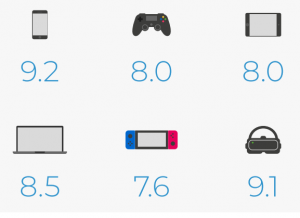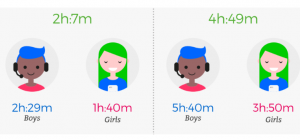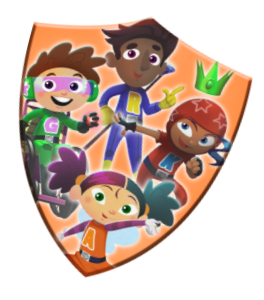The online world is posing an ever-increasing risk to children, and it is important that schools, parents and carers work together to take an active role in teaching children about online dangers. Learning how to act safely when using the internet is an incredibly important part of safeguarding our children.
We are therefore delighted to announce that Southfields Primary have shown our commitment to protecting our pupils online by working with National Online Safety- providing resources for all parents and carers.
The resources include Parents & Carers courses (presented by Myleene Klass), online video resources and weekly guides covering a huge range of topics, including:
- Online Relationships
- Fake Profiles & Social Bots
- Online Bullying
- Online Grooming
- Child Sexual Exploitation
- Sexual Harassment & Violence
- The Dark Web
- Games & Trends
Targeted Adverts & Pop-Ups
- Sexting
- Live Streaming
- Online Identity
- Screen Addiction
- Online Challenges
- Overspending
- Fake News
- Online Fraud
- Online Reputation
- Online Gambling
- Radicalisation, Terrorism & Extremism
- Age Inappropriate Content
- Copyright & Ownership
- Hacking
- Social Media Platforms
- Personal Data
- Pornography
To create your account, please follow:
https://nationalonlinesafety.com/register/free and complete your details. When you’re set up, you’ll be able to set ‘Parent/Carer’ as your user type.
You can access National Online Safety online via any device- including via our brand-new smartphone app. To download the app, please go to:
Online Gaming

What is online gaming?
Online gaming describes any video game that offers online interactions with other players. Video games used to be classified by an Online Content PEGI descriptor to signify whether they were online or not. However, as most games now provide online interactions this distinction is no longer used.
What is still different game to game, is the level of interaction on offer. How much information players share and how many people they interact with are the two key factors for parents to be aware of.
Offers clear benefits for children
Online games are important to understand because they offer a huge amount of fun, enjoyment, teamwork, collaboration and imaginative adventure for children. Played healthily they contribute an essential part of children’s development and socialisation.
However, it’s important for parents to understand online gaming so they can encourage safe and healthy habits in children and technology from a young age.
What information do you need to know about gaming?
Gaming is a fun and sociable way to spend time, encouraging teamwork and developing skills. All good stuff, but there are a few things you need to be aware of:
- Some games let children play and chat with anyone in the world. This means they might come across offensive language and bullying
- Not everyone online is who they say they are. Children should avoid giving out personal details that could identify them or their location
- Some games encourage players to buy extra elements during the game – children have been known to run up large bills without realising
- In extreme cases bullying, also known as ‘griefing’, can be used as a tactic to win games. Children may find themselves either bullying or being bullied
- Get involved by finding out what type of games your child enjoys and making sure they’re appropriate for their age
- It can be hard to stop some games in the middle of a battle as there are penalties for quitting and children may feel they are letting teammates down.
What are children doing while online gaming?
Playing Together
The most common aspect of online gaming is being able to play with other players from all over the world. They may be in different countries, be using different technology and be vastly different ages, but players can come together and share an online gaming experience together.
This is what drove the popularity of Fortnite. It’s a shooting game like any other, but it lets you play with 99 other players in a competition to be the last man/woman/team standing. Children play Fortnite with friends, but also — inevitably — with people they don’t know.
Parents should be aware of this aspect of games as it means that children can be in contact with strangers. There are simple settings and strategies to keep this safe on all consoles and mobile devices.
Trading Virtual Items
Online games that don’t offer direct gameplay interactions with strangers often enable players to interact with each other to exchange items and power-ups. Rocket League, for example, is a game that is played online against other players that also has a substantial trading element to the experience.
Players earn special paint colours and decorations for their vehicles by paying for passes and performing well in the game. They can then trade their hard-won items with each other. Although this kind of trading isn’t usually actively encouraged in the game there are usually third-party apps that enable players to connect and trade.
It’s important for parents to understand how this works as children can be incentivised to make connections with adults with the allure on rare items. Also, children can want to spend more money on games to unlock more items to trade.
Parents should be aware of this aspect of games as it means that children can be in contact with strangers. There are simple settings and strategies to keep this safe on all consoles and mobile devices.
Sharing Information
Playing any aspect of an online game will usually require you to set up an account for the game. This may be on the game console or tablet itself or on a related website. This enables the player to have their own online profile and persona.
It’s important for parents to be the ones setting up these accounts so they can control the parental settings and select appropriate levels of privacy. Linking a parent’s email address to these accounts also ensures that any online messages are read in a timely fashion.
How many children play video games?
Almost all parents claim children have played video games in some capacity.

What age do children start gaming?
Three in four children between the ages of 4-5 have experienced playing games on a tablet.

How much time do they spend gaming?
Children spend just over 2 hours a day during the week and nearly 5 hours at the weekend with variations by gender.

Time spent gaming online increase with age
Estimated weekly hours spent gaming increase with age, ranging from 6 hours 12 minutes for 3-4s who play games to 13 hours 48 minutes for 12-15s
Young people are twice as likely to talk to people they know while gaming than those they only know through playing the game (34% 8-11s, 53% 12-15s)
Source (all above): Ofcom media use report 2018
Each of the sections above offers suggestions of specific aspects of online gaming for parents to be aware of. In addition, there are some excellent steps you can take as a parent to guide your child to safe and healthy online gaming.
- Get involved by finding out what type of games your child enjoys and making sure they’re appropriate for their age.
- Play games together with your child and keep the technology in shared family spaces rather than bedrooms.
- Talk to them about who they are playing with and what information they are sharing.
- Talk about what information is and isn’t appropriate to share, particularly personal details that could identify them or their location.
- Talk about the financial costs of games and agree how children will spend their money online.
- Discuss what they would do if they were bullied online, and what the appropriate steps to take are.
- Ensure you have setup accounts yourself on regularly checked email addresses and with appropriate settings for your child’s age.
- Agree how long is appropriate to play in one session and how many sessions in a day. Then setup these restrictions in parental settings with your child.
The PEGI (Pan European Gaming Information) labels appear on a game’s packaging indicating one of the following age levels: 3, 7, 12, 16 and 18. They provide a reliable indication of the suitability of the game content for different ages. Descriptors will indicate the main reasons why a game has received a particular age rating. There are eight such descriptors: bad language, discrimination, drugs, fear, gambling, sex, in-app purchases, and violence.
More information can be found at https://pegi.info/what-do-the-labels-mean
Social Media
Being active on social media is a great way to show others how much fun you’re having, but it’s important that you know how to use these apps safely and securely so that bad things don’t happen. By following our social media safety tips below, you can make sure that your personal information stays private, your postings are positive and that your social media use overall is responsible, healthy and most of all enjoyable.
In the social media safety guide, you’ll find tips such as don’t accept friend requests from strangers, block online bullies and to never share your personal information with people you don’t know.
1 Don’t Accept Friend Requests From Strangers
Make sure that you set your profile to private so that people you don’t know can’t find you online. Always tell a trusted adult if a stranger or somebody you don’t know sends you a message or a friends request.
2 Never Share Your Personal Information With People You Don’t Know
Keep your personal information personal. Some people online aren’t always who they say they are and might ask you to share things that you don’t feel comfortable sharing.
3 Don’t Share Embarrassing Photos or Videos Of Others Online
This could really upset them and could get you into a lot of trouble. Always think twice before posting anything on social media and treat people online as you would in real-life.
4 Never Send Naked Pictures Of Yourself To Others
This is illegal if you are under the age of 18 and you could get into trouble with the police. If you are being pressured by someone, always say no and tell a trusted adult. Even if you think it is innocent fun, the photo could be shared with other people and you won’t be able to control who sees it.
5 Create A Positive Online Reputation
Always be kind and polite when posting comments on social media and only upload pictures and videos of things that you are proud of. This forms part of your digital footprint. Everything that you do online can be tracked and monitored and could affect what people think of you in real-life if it is negative.
6 Limit Your Screen Time
Social media can be addictive, and it is easy to keep checking newsfeeds or notifications every 5 minutes which can affect your behaviour and stop you from doing other things. remember to only use your phone at certain times of the day, turn notifications off at bedtime and go out and have some fun as much as possible. This will keep you fit and healthy and make you appreciate there’s more to life than just what’s on social media.
7 Block Online Bullies
Sometimes people might say nasty things to you online or post offensive comments on your pictures or videos. If this happens, always tell a trusted adult who will help you block them from your profile and support you in taking further action.
8 Report Inappropriate Content
If you see something on social media that you don’t like, offends you or upsets you, you should always report it to a trusted adult. You should also report it to the social media app who will be able to remove the content if it is against their user policy and can block the person who posted it.



